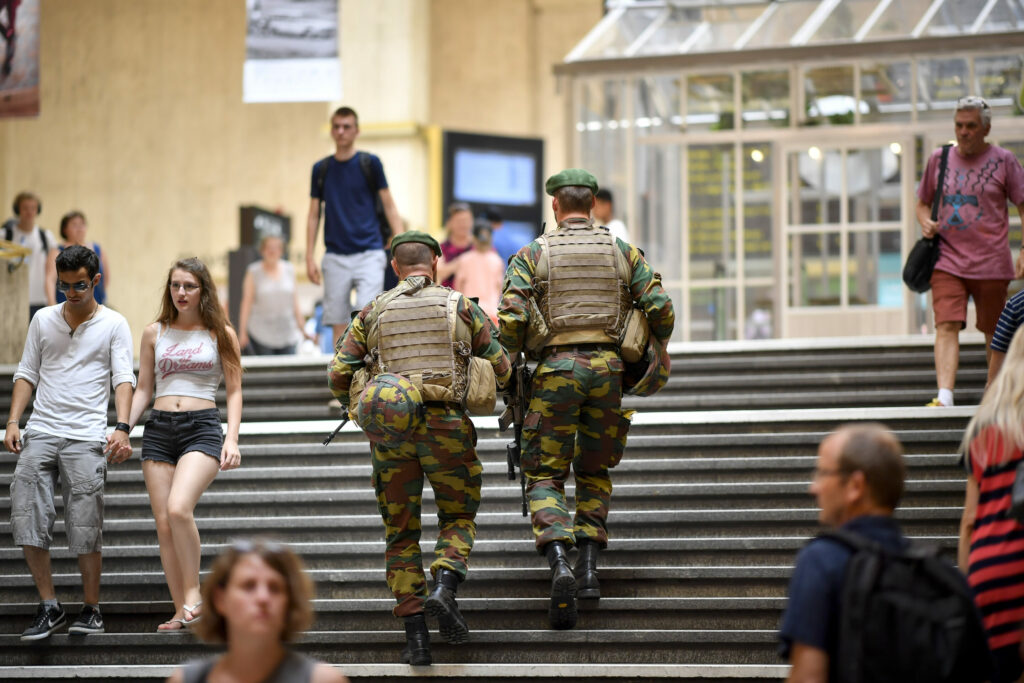Defence Minister Theo Francken (N-VA) has said that soldiers will not be deployed on guard duty in Brussels. This had been requested by Interior Minister Bernard Quintin (MR) in response to the escalating drug violence in the city.
Brussels was rocked by four shootings in three days, resulting in one death and one injury. The spate of shootings is being investigated as part of a wider drug gang feud. Several ministers argued that a holistic approach is necessary to tackle drug violence. Quintin has even asked for soldiers to be deployed for internal security missions, to free up police officers for this fight.
However, Francken responded that there is currently no legal framework for allowing military personnel to take over the duties of police officers, marking a setback for Quintin.
"The police are responsible for internal security; the military should operate abroad," Francken said on Radio 1 on Monday. He added that the "problem in Anderlecht will not be solved by Defence."
'Territorial defence reserve'
Francken did note that the coalition agreement provides for a "territorial defence reserve." This would help the country in emergencies and for static surveillance missions at terror threat levels 3 and 4 (Belgium's current level is at 3). It would include the ability to secure nuclear infrastructure and embassies with static security.
However, conditions must be met. The reserve still needs to be assembled and trained and a clear legal and deployment framework must also be defined in advance, which is not yet the case. He noted that this was a source of frustration during the 2016 attacks: soldiers were deployed on the streets, but they could not do much due to the lack of a clear legal framework.
"It is important that they now have that, and that there are clear rules of engagement." The minister said he would not wait to implement the agreement once it is in place. Francken will meet with Defence Chief Frederik Vansina on Monday, during which the matter will be discussed.

